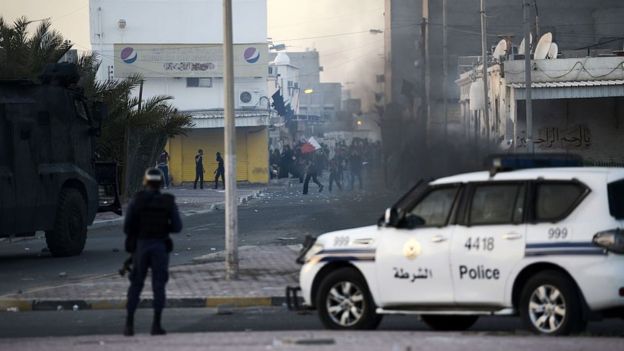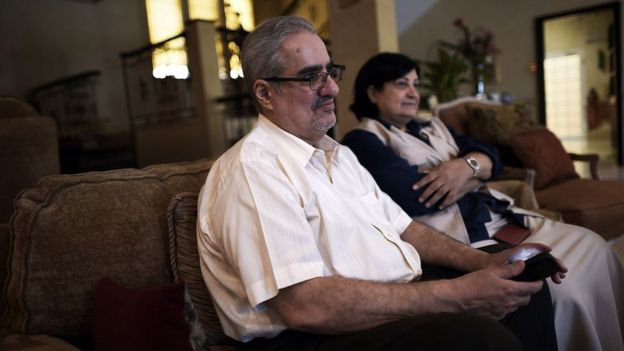A court has ordered the dissolution of Bahrain’s main secular opposition group, as the Gulf state continues a crackdown on dissent.
The National Democratic Action Society (Waad) was accused of “advocating violence, supporting terrorism and incitement to encourage crimes”.
Amnesty International said the allegations were “baseless and absurd”.
It comes less than a year after the main group representing the Sunni-ruled kingdom’s Shia majority was banned.
Bahrain has been wracked by deadly unrest since security forces crushed pro-democracy demonstrations mainly led by Shia during the Arab Spring in 2011.
On Wednesday, the official Bahrain News Agency cited the justice ministry as saying that the High Civil Court had ordered the dissolution of Waad.
It found Waad’s use of the term “martyrs” when describing three men who were executed in January for killing police officers had violated the Law on Political Associations.
The court also ruled that Waad had broken the law by expressing solidarity with the Wefaq National Islamic Society when the Shia group was dissolved last July, and also by announcing that it “rejected the 2002 constitution as illegitimate”.
 Image copyrightAFP
Image copyrightAFPThe justice ministry filed a suit against Waad in March after the group issued a statement on the anniversary of the 2011 uprising warning that Bahrain was suffering from a “constitutional political crisis”.
Waad and its leaders denied breaking the Law on Political Associations, and have repeatedly stated their opposition to violence and commitment to peaceful protests.
“By banning major political opposition groups, Bahrain is now heading towards total suppression of human rights,” said Lynn Maalouf of Amnesty International.
“The suspension of Waad is a flagrant attack on freedom of expression and association, and further proof that the authorities have no intention of delivering on promises of human rights progress.”
Waad’s former secretary-general, Ibrahim Sharif, has been repeatedly arrested, imprisoned, released and re-arrested in connection with his opposition activities.
Amnesty said the suspension of Waad came amid a “general clampdown on human rights” that had intensified since the start of 2017.
This included the trial of prominent human rights defender Nabeel Rajab, the approval of a constitutional amendment allowing civilians to be tried before military courts, the restoration of arrest and interrogation powers to the National Security Agency, and excessive use of force against protesters, the rights group added.
 Image copyrightAFP
Image copyrightAFPLast week, five people were killed and almost 300 arrested when police raided the home of Bahrain’s most prominent Shia cleric, Ayatollah Isa Qassim, and broke up a sit-in by his supporters.
The interior ministry said officers came “under attack by members of a terrorist cell” during the operation, but activists said they shot peaceful protesters.
The raid came two days after Sheikh Qassim was found guilty by a court of corruption and handed a one-year suspended prison sentence.
The cleric’s supporters have camped out around his home since June, when the authorities revoked his citizenship after accusing him of promoting sectarianism.


